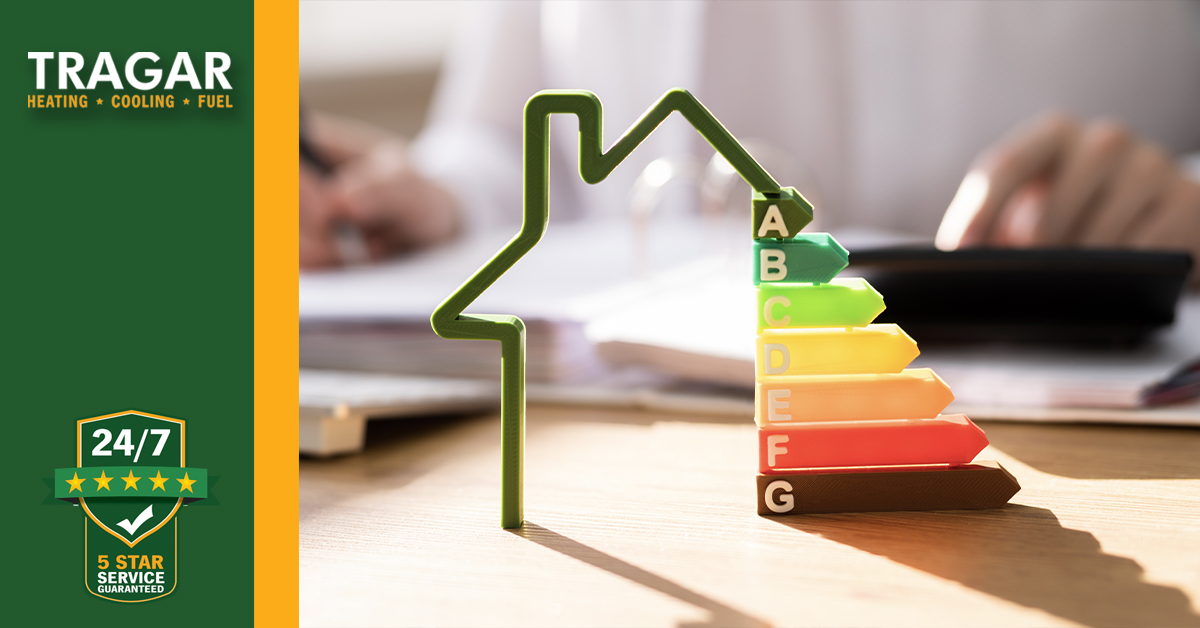 With summer’s arrival, it may become obvious that your new home and its HVAC system are less than energy efficient. Perhaps you’re receiving larger than expected power bills, or maybe your system isn’t adequately cooling your home.
With summer’s arrival, it may become obvious that your new home and its HVAC system are less than energy efficient. Perhaps you’re receiving larger than expected power bills, or maybe your system isn’t adequately cooling your home.
New homeowners may benefit from a professional energy audit.
Each year, the average homeowner spends 10-20 percent of their monthly power bill on inefficiencies due to outdated HVAC systems, poor insulation, and leaky windows and doors. Home energy assessments can pinpoint these issues and help you make changes to reduce waste and save money.
In addition to our installation, maintenance, and repair services, Tragar Home Services offers home energy audits to determine how much energy your home consumes and to advise you on ways to conserve both energy and money.
What Does a Home Energy Audit Consist Of?
During an energy audit, we will assess your home, your HVAC system, and your utility bills. This will help us determine the efficiency of your home and enable us to suggest areas of potential improvement.
Elements of an energy audit may consist of:
- A room-by-room analysis of the house’s windows, doors, and vents.
- A homeowner interview to analyze power bills and to better understand how residents use various parts of the house.
- A thorough examination of existing equipment to look at age, condition, SEER rating, and suitability of the current HVAC system.
- A blower door test that uses fans and infrared imaging to determine where energy is being lost through air leaks, drafts, or poor insulation.
- Thermographic scans, which deploy special cameras to record temperature variations along the exterior of the home.
At the end of this process the examiner will give a detailed report on the current state of your home’s energy use as well as suggestions for reducing energy use and increasing your comfort.
Is a Home Energy Audit Worth It?
A home energy audit has financial benefits, including eligibility for tax credits in the short term, and potential savings on your energy bills in the long run. You also will be doing the planet a favor by cutting waste and running your home more efficiently.
Are Home Energy Audits Tax Deductible?
The IRS offers a Home Energy Audit Tax Credit toward inspection of your principal residence. You can claim up to 30 percent of expenses with a maximum of $150 when you obtain a written report prepared by a certified home energy auditor.
What Qualifies for the IRS Energy Tax Credit?
There are also IRS Energy Tax Credits for making home improvements that lead to greater energy efficiency. These include upgrades like new windows, doors, insulation, electrical, furnaces, boilers, air conditioners, heat pumps, biomass stoves, and more.
There is a separate tax credit for installing a geothermal heat pump. We recommend consulting your accountant or tax professional to determine which qualified energy efficiency improvements allow you to claim these credits.
Tragar Home Services Helps Your Home Run More Efficiently
Tragar Home Services is Long Island’s trusted name in efficient home heating and cooling. From installing energy-efficient heat pumps, to fixing inefficiencies in your current HVAC system, to delivering environmentally friendly Bioheat® fuel… we are committed to ensuring your system runs as efficiently and economically as possible. Our team can perform a residential energy assessment, recommend improvements, tune up your existing system, or replace it with new, state-of-the-art energy saving equipment. Contact us today to schedule an appointment for any of our services.


One Response